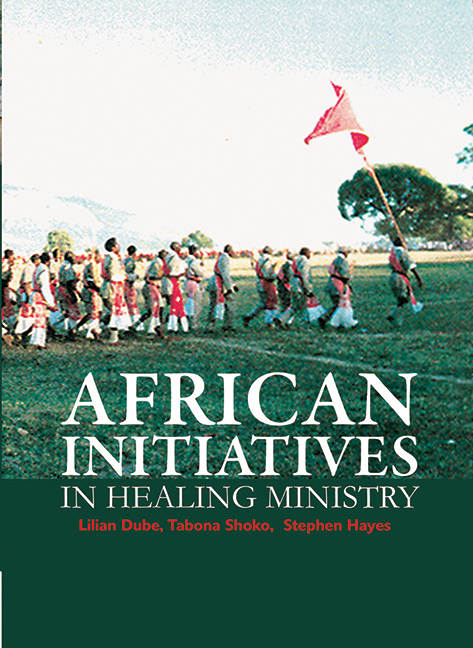A distinctive African revival in Christian healing ministries
Published online by Cambridge University Press: 28 February 2020
Summary
In the two preceding chapters the authors evaluated the healing practices of the particular groups they studied, and compared and contrasted healing in traditional African religion and Christianity, the healing practices and theology of different Christian groups. The case studies were all of Shona groups in Zimbabwe. In this section I look at some of the wider implications of this, and give some pointers for possible future research. We had hoped it might be possible to go into some aspects of approaches to healing in greater depth in this publication, but unfortunately conditions in Zimbabwe made it too difficult, so I shall simply suggest some of the possibilities here.
While comparisons can be instructive, however, it is important not to overgeneralise. In Shona traditional religion there is a well-established cult of the High God, Mwari and a belief in various categories of friendly and unfriendly spirits. Such beliefs are not necessarily common in other parts of Africa. Writing of a study in Soshanguve, in South Africa, Anderson notes that
Evil spirits and demons do not appear to be as abundant in traditional African religion in South Africa as they are further north, and few of the church members interviewed knew much about them, except in a Christian context. There does not appear to be anything that approximates the shavi and ngozi spirits described by Daneel in Zimbabwe. This does not mean that evil spirits are unknown to the African Pentecostal and Zionist churches, for several church members and leaders spoke about their experiences with them. Exorcism forms a regular part of pastoral ministry in these churches. (Anderson 2000:176)
This could, however, be a generalisation in the other direction. Anderson’s research was mostly among urban people in Soshanguve, most of who were members of Pentecostal and Zionist churches. African traditional religion would therefore be seen through Christian spectacles perhaps to a greater extent than in Zimbabwe. In rural Zululand people often speak of different varieties of evil spirits such as isipoliyane and amafufunyana, though these too may be largely Christian constructs (Hayes 1990:152). Niehaus (2001:24) notes that in the Mpumalanga Lowveld there were healers among Tsonga speakers who were possessed by alien spirits, and these healers also attributed certain diseases to the activities of alien spirits.
- Type
- Chapter
- Information
- African Initiatives in Healing Ministry , pp. 180 - 194Publisher: University of South AfricaPrint publication year: 2011



